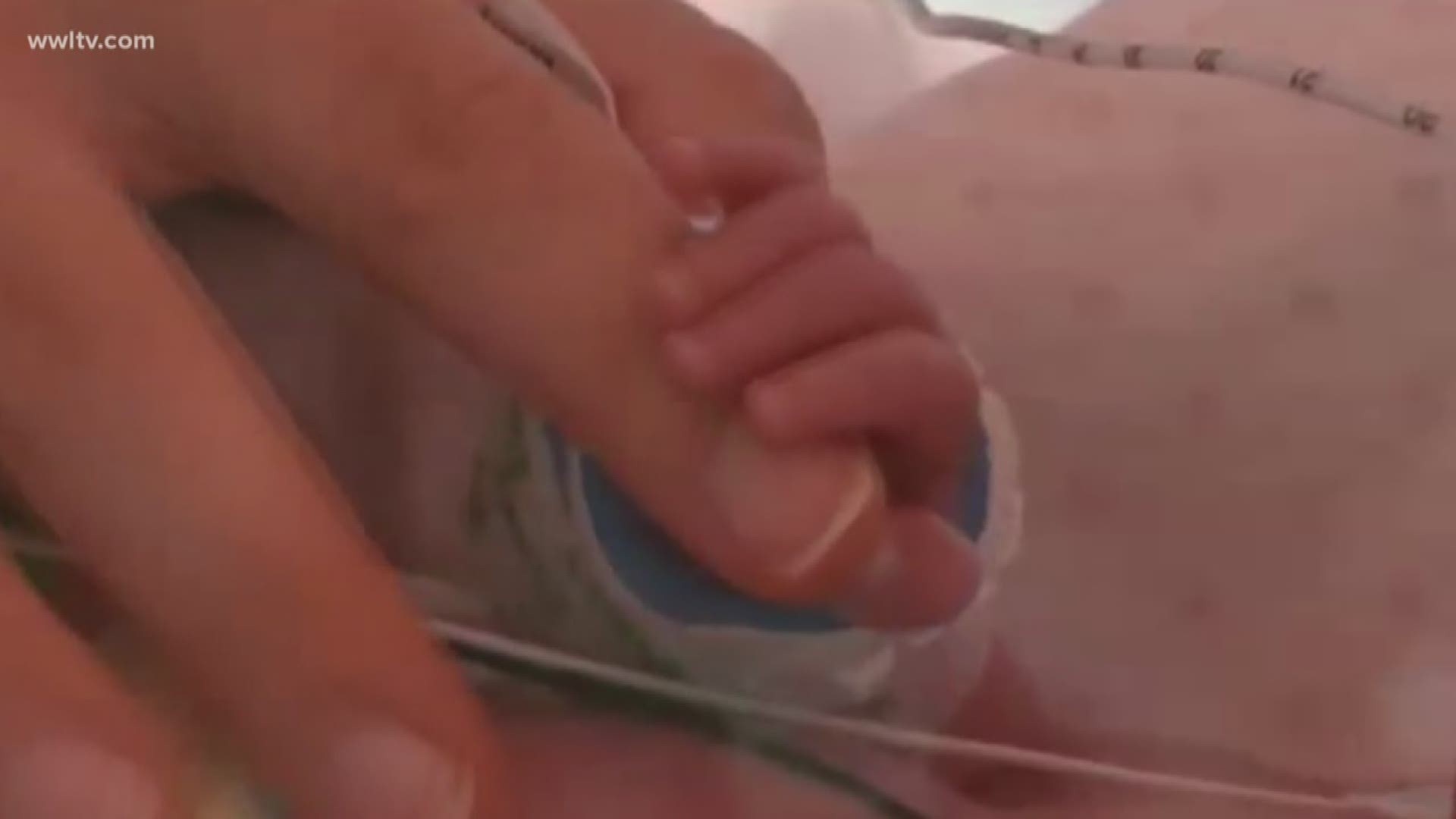NEW ORLEANS -- Local women are planning a big gathering this Saturday to bring attention to a common medical condition that few talk about.
Joanne Harmon was busy in the 1980s and 1990s, as a registered nurse and raising four children, but there was something she kept secret back then and blamed herself for.
"The scary ones was when the thoughts would say, 'Do this to your baby. Push your baby down the two flights of stairs.' That is scary," Harmon remembers.
Never would she have ever harmed her own children, but it wasn't until much later in life when she was studying to be a licensed professional counselor that she learned those intrusive thoughts were part of what can happen after a woman delivers a baby, called postpartum depression.
"And I walked away and she had listed all these types, different types of expressions of the disorder and I experienced every single thing with each child," said Harmon about her revelation.
That experience led her to treat women with postpartum depression, anxiety, OCD, bipolar disorder and psychosis.
"They say, 'I feel like I'm not myself. I feel like I'm not the same person that I was before I had the baby. I feel like a bad mother. I don't want my husband to leave me,'" Harmon said about her patients' concerns.
More recently, licensed clinical social worker and mother of two, Bess Hart, didn't feel like she could handle her feelings after delivery.
"I went to my doctor and said like, 'I just really feel like I'm struggling, and she was a wonderful provider and we had a good rapport, but she just said, 'It's just the sleep deprivation,'" Hart recalls.
But she knew she needed help, so went to see a psychiatrist. Bess now has a better understanding and empathy for the postpartum women she treats and counsels.
"People are really wondering, ‘is this normal?’ or is what I'm experiencing beyond something that's normal. And I think women are having a lot of fears and anxiety about feeling overwhelmed," Hart said of her patients.
"They come into the office. They're crying. They're having difficulty sleeping. They're lacking their normal interest in things they normally used to do," said Obstetrician and Gynecologist Dr. Jennifer Brunet who is a Senior Physician at Ochsner-Baptist.
Dr. Brunet is also a hormone expert and she says these postpartum mood disorders can happen in the first 12 weeks after delivery. Ochsner even has a test to identify serious disorders early on.
"Often times, some physicians may pass it off and say, 'OK, this is part of you know, this is part of becoming a mom. Things will get better,' but about one in seven women, which is very common, will experience these feelings," said Dr. Brunet.
And she explained why.
Within just two days after giving birth, a woman's estrogen goes from sky high to almost nothing. The female hormones are tied to the amount of serotonin in your brain. That neurotransmitter is called the happy chemical, because it contributes to wellbeing and happiness. So, when the estrogen plummets, so does the serotonin.
"There is a biologic reason for this and it's not because they are truly depressed. This is biologic, and if we just looked back at the basics, just put these women on what they're losing. And I've done it. I've done it in my own practice and it works," Dr. Brunet said about hormone replacement.
Dr. Brunet says antidepressants can be used, but they may take two to three weeks to work and only help 30 to 50 percent of women. But a short-term estrogen patch, or under the tongue lozenges, can be a game changer.
"That's the beautiful thing about estrogen, is that it works quickly, you know. Usually within a few days you can start seeing a response rate in these women," she explained.
And the good news is the bioidentical form of estrogen is used, not the synthetic in the pill. And the correct dose does not interfere with milk production for breast feeding.
"I really do hope that it becomes more routine in doctor’s appointments and that there's more research on the hormonal aspect of what's happening for women," Hart said.
Both Joanne and Bess have joined Postpartum Support International, a non-profit to help other women.
"If we could get moms coming in and not deny their experience, they would feel better faster and not feel so alone, because a lot of moms also feel very isolated and very alone," said Harmon.
Postpartum Support International invites everyone to a special big event called "Climb Out of the Darkness." It's Saturday, July 21, at 9 a.m. in Lafreniere Park at shelter 1.
For more or to donate: http://www.postpartum.net/
Postpartum hotline for moms and dads: 800-944-4773

